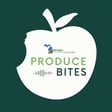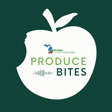Become a Creator today!Start creating today - Share your story with the world!
Start for free
00:00:00
00:00:01

The Upper Peninsula Food Exchange (UPFE)
In this episode, Landen Tetil and Eli Hopp talk about the Upper Peninsula Food Exchange (UPFE), which is a food hub that supports local food systems in the Upper Peninsula. They specifically discuss what UPFE's food safety policies are for produce vendors and how Michigan Produce Safety Technicians can help farmers meet these expectations.
Funding for this podcast was made possible in part by the Food and Drug Administration through grant PAR-16-137. The views expressed in the posted materials do not necessarily reflect the official policies of the Department of Health and Human Services, nor does any mention of trade names, commercial practices or organization imply endorsement by the United States Government.
Recommended
Transcript
Introduction and Host Introductions
00:00:00
Speaker
Hello, and welcome to the Agri-Food Safety Produce Bites podcast, where we discuss all things produce safety and dive into the rules and regulations surrounding the Food Safety Modernization Act Produce Safety Rule. Well, hello, everybody. My name is Landon Titel, and I am a produce safety technician through the Michigan On Farm Produce Safety Program. And I am based out of the Marquette County Conservation District.
00:00:25
Speaker
and help farmers across the entire Upper Peninsula in regards to their on-farm food safety practices.
Role of UP Food Exchange in the Food System
00:00:33
Speaker
I am Eli Hoppe, the market manager for the UP Food Exchange online marketplace. I connect farmers with wholesale purchasing and selling through the central, western, and eastern UP. Yeah, so we, Eli and I both have the entire Upper Peninsula as our sort of service areas.
00:00:56
Speaker
And what we're going to be talking about today is a collaborative known as the UP Food Exchange, as in the Upper Peninsula Food Exchange. And really what the UP Food Exchange, or UPFI, as we sometimes call it,
00:01:14
Speaker
is, or its purpose is that we work together, many different organizations come together to work to collaborate among communities across the UP for a mutually supportive food system in the Upper Peninsula. And so really what UPFI is all about is bringing people together sort of in the name of food
00:01:38
Speaker
We work on all sorts of
Challenges and Opportunities in Farmer Engagement
00:01:41
Speaker
different things. So like I, for example, work with farmers and sometimes schools and other groups to increase their food safety practices. Eli, on the other hand, works more on a marketing sort of side of things, working to make those connections between producers and buyers and sellers.
00:02:04
Speaker
Do you want to talk a little bit more about your specific role in Upfee or what sorts of things that you do in your work that contribute to the UP Food Exchange?
00:02:16
Speaker
Absolutely. So my primary role is to manage the online marketplace. And my biggest customer is the Market Food Co-op. So I do a lot of meetings and connections with meeting with the farms and assessing the needs for the co-op and making that relationship go as smoothly as possible. How long have you been doing that, Eli?
00:02:44
Speaker
I've been working in this position now for a year and a half. Yeah, a year and a half. How do you feel like that's been going? Do you feel like your work with the Marquette Food Co-op is helping to meet up these mission and vision statements?
00:03:03
Speaker
I do. I think it's going great. We consistently see farmers selling more and more to the co-op each year in supporting their growth goals. And as far as meeting with the UP Food Exchange vision, I think that just goes along with it, supporting the overall food system of the UP. Yeah, I think that's great.
00:03:31
Speaker
I definitely agree with you. I feel like there's just more every year. There's more farmers, there's more food being grown and looking to be sold. I see that too in my work. I've been the produce technician for about four and a half years now in the UP. And I started working with the Market Food Co-op and their produce vendors as a sort of like a food safety gauge
00:04:00
Speaker
we'll say, I don't know, maybe three years ago.
Food Safety Assistance and Vendor Growth
00:04:05
Speaker
And it kind of started out with, hey, we've got about eight produce vendors and we have someone on staff that we pay to go out and sort of check on these farmers' food safety practices on farm. But I hear that you exist in your program and you offer free technical assistance to
00:04:30
Speaker
to produce farmers for food safety, can you do this for us? And I was like, yes, absolutely, give me your farmers. And so it started out pretty small. And then I wanna say it's like doubled almost that Eli, do you have a number of how many produce farms the co-op has now? Right now we're working with about 13 to 14 farms each year.
00:05:00
Speaker
Okay. So not doubled, but it's grown pretty substantially. Yeah. Um, and I feel like there's always more, I feel like, um, it's pretty common that I get an email from you saying like, Hey, there's a farm that's interested. You're going to have to set up a visit if they, you know, if they choose to pursue this. Oh yeah. Every spring. Yeah. Every spring. Yes. The Springs are crazy.
00:05:24
Speaker
So up fees policy on food safety for all of our vendors is that each year all of our vendors need to be visited by a produce safety technician which is Landon and she goes and checks out the farm and
00:05:42
Speaker
sees where they're at, helps them make up that farm plan for each year. And then she lets us know if there's anything that needs to be changed on the farm, high risk.
00:05:55
Speaker
situations and then we're just in communication as far as that goes, if things have been resolved, it's all kept anonymous. So everybody's privacy is kept that way, but it's been a pretty good relationship. If anything comes up, we just have conversations and decide how we're going to address it from there. Yeah. Um, I do keep things confidential, so it's
00:06:24
Speaker
up to the farmer if they choose to want to share any information about what happens on our food safety visits with UPFI or the co-op or whoever, whichever seller that may be concerned.
Policies and Tools for Produce Safety
00:06:40
Speaker
We kind of came up with this stoplight system where
00:06:44
Speaker
green would be considered low risk, yellow would be medium risk, and red would be high risk. And so if there's anything that's concerning in terms of food safety, any red flags, UPFEE may see that they have that sort of like yellow or red food safety score and ask if there's been corrective actions. But they don't get to know
00:07:11
Speaker
what that food safety red flag is, unless the farmer chooses to reveal that. And then while I'm on the farm, the sort of system that I have in place is really just to follow the Michigan's Produce Safety Risk Assessment. So it's the tool that all produce safety technicians have, which is just a really good way to look at the farm as a whole
00:07:38
Speaker
and identify any potential risks to food safety that might be present. And then it also offers some solution-based guidelines in terms of bringing any identified risks down to a low risk level. And so that's the tool that I use with all of these farms. Upfeed does not require that any farm
00:08:06
Speaker
get the certificate that's attached to that tool or that program. So it is a little bit different from a sort of traditional pathway that a farm might have with a produce safety technician.
Educational Opportunities and Resource Sharing
00:08:23
Speaker
So the farmer is required to have these food safety visits and they're required to have low risk practices, but they're not required by
00:08:31
Speaker
up fee to actually get the produce Michigan's produce safety risk assessment certificate. So that is one sort of unique thing about that relationship.
00:08:45
Speaker
And I've had a lot of farmers mention they've learned a lot of things from your visits, especially navigating on-farm visits and how to address that safely with all of these things that have come up with COVID and concerns. So that's really encouraging to see as well. Yeah. And I'm excited for this coming spring, Eli. Eli is hoping to tag along on
00:09:13
Speaker
a lot of these food safety visits to get a better idea of how things go. And for farms that give us permission, of course, that should be a fun time in the spring. It's not really worth it to go in the winter because nothing's growing in the winter, of course, and we want to see some things in action. It's the best way to identify any risks that might be present. What are some other ways UpFeat is valuable? Do you have anything else you want to throw out there, Eli?
00:09:44
Speaker
I would say UpVee is valuable as a resource for people who are interested in getting a farm started, who are looking for support for expanding their farm, wholesale support. Basically, we're just a big resource portal for anything local food within the UP.
00:10:11
Speaker
But we have done, we as in the UP food exchange, we have done some sharing across, I wanted to say across borders, but beyond the UP. Yes. Of resources and sort of how we do things, how we're structured as an organization, things like that.
00:10:36
Speaker
Links to anything referenced in this episode are provided in our show notes, which can be accessed on the website at canr.msu.edu slash agri-food underscore safety. Thank you to everyone for listening, and don't forget to tune in next month for another episode of our Produce Bites podcast.

